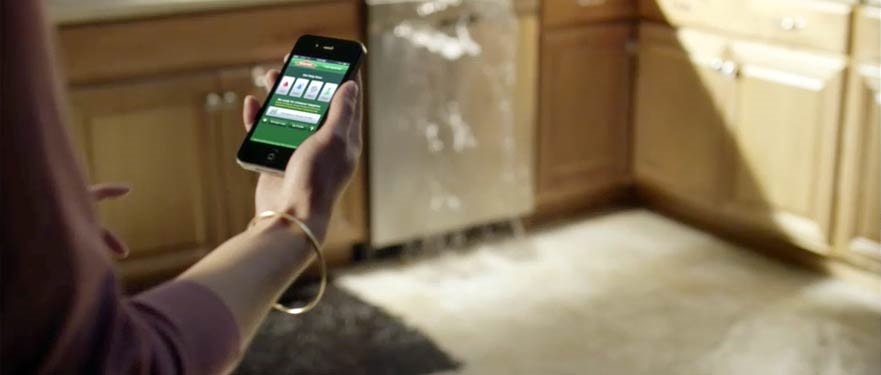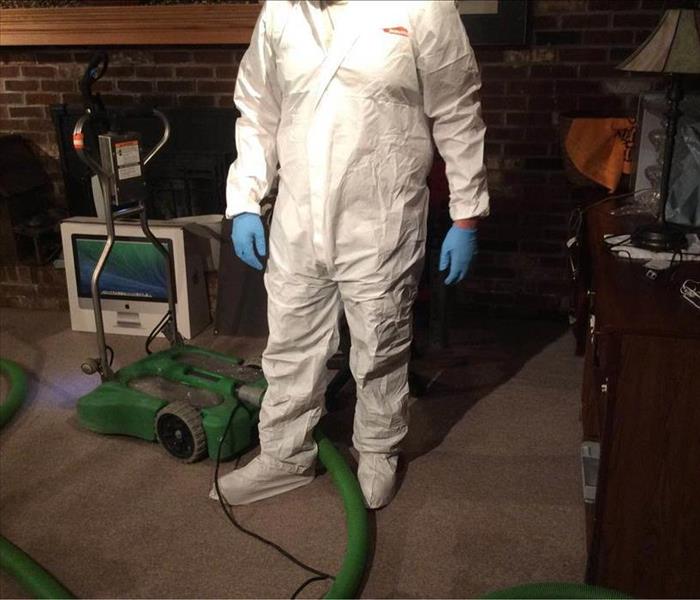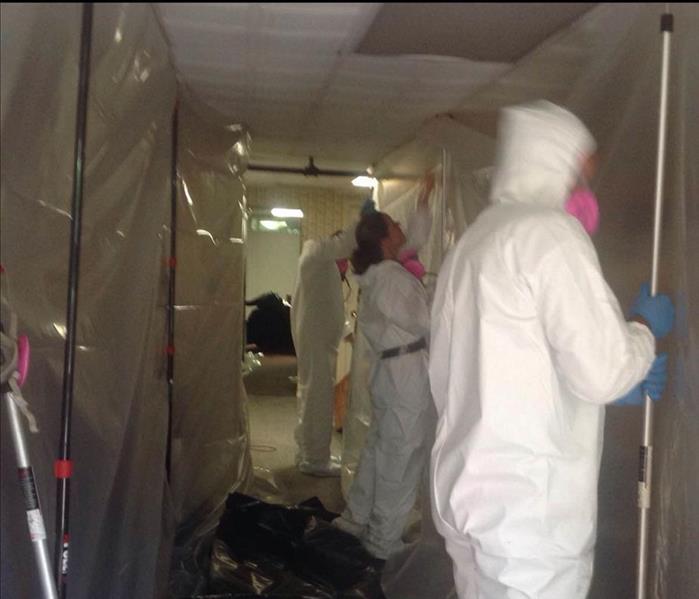
Water Damage Emergency Tips
What you can do until help arrives
Water Tips | Fire Tips | Biohazard Tips | Mold Tips
Water damage can begin from a number of various sources. Sometimes, a small pluming leak underneath a sink can initiate a slow process of decay. Other times, a flood or storm can usher in serious damage very quickly. While disasters can’t be anticipated, there are several specific steps that can be taken to minimize the risks.
1. Clean up spills immediately.
Mold spores exist naturally in the environment and are an organic part of the ecosystem. However, when water is left standing for even a few hours, these spores can fester and develop into a serious mold problem. Dry all spills as quickly as possible, and if necessary, use a dehumidifier to reduce moisture content in the atmosphere around the spills.
2. Inspect plumbing fixtures regularly.
Often, small leaks can begin behind faucets and underneath sinks. Inspecting these regularly will allow you to get ahead of any potential leaks that may develop into larger water damage problems.
3. Utilize professional assistance for severe problems.
For many water damage issues, professional assistance is necessary. SERVPRO is commtted to excellence and offers a variety of the most highly advanced equipment to remediate any water damage.
Have A Water Damage Emergency? Call (814) 624-9083
What To Do After Flooding
- Remove excess water by mopping and blotting.
- Wipe excess water from wood furniture after removal of lamps and tabletop items.
- Remove and prop wet upholstery and cushions.
- Place aluminum foil or wood blocks between furniture legs and wet carpeting.
- Turn air conditioning on for maximum drying in summer.
- Remove colored rugs from wet carpeting.
- Remove art objects to a safe, dry place.
- Gather loose items from floors.
What NOT To Do After Flooding
- Don't leave wet fabrics in place. Hang furs and leather goods.
- Don't leave books, magazines or other colored items on wet carpet or floors.
- Don't use your household vacuum to remove water.
- Don't use television or other household appliances.
- Don't turn on ceiling fixtures if ceiling is wet, and keep out of rooms where ceilings are sagging.




 24/7 Emergency Service
24/7 Emergency Service




